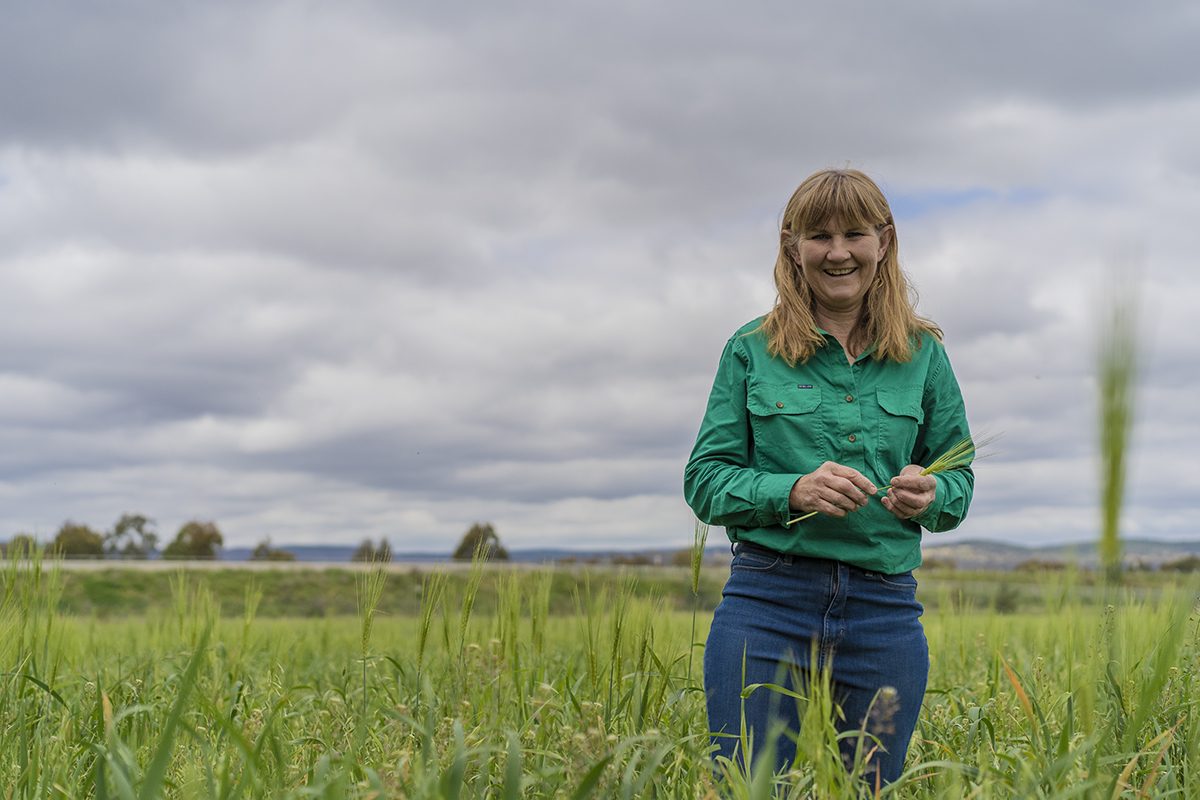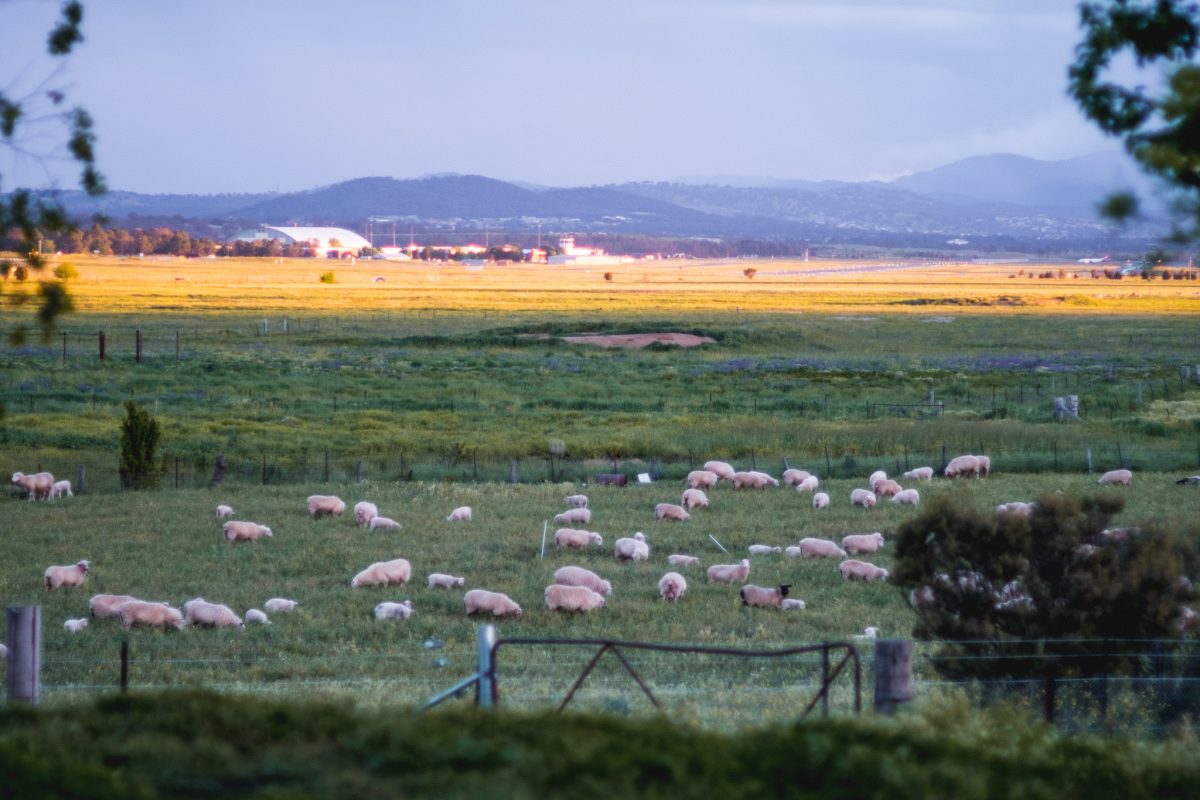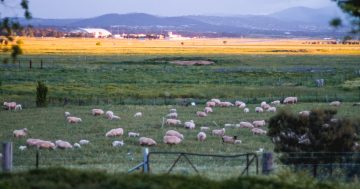
Majura Valley farmer Anne McGrath on the family property Majura House, some of which has just been heritage listed. Photo: Elsie Percival.
Majura Valley farmers have called on the ACT Government to get on with offering them 25-year leases and clarify aspects of the proposed arrangements.
Planning Minister Chris Steel wrote to the five split block farmers, who occupy land with both Commonwealth and ACT tenure, offering a breakthrough in the 20-year saga with the intent to provide 25-year leases with no withdrawal clause, which would guarantee the use of the land for the full term of the lease.
At first blush, the farmers cautiously welcomed Mr Steel’s offer, but spokesperson Paul Kier said on Monday after meeting on the weekend that an intent to offer did not amount to much and no timeframe had been provided.
Mr Kier said the farmers also wanted clarity over a proposed restriction on transfers of leases to third parties, in effect preventing any sales.
“Some of us would want to retire at some stage and it just seems very unreasonable,” he said.
The farmers will respond to Mr Steel and keep the pressure on for a deal before the election in October.
Ms Steel’s letter also suggested that the delay had been with the Commonwealth because the ACT Government was unable to offer any new lease agreements until the land was degazetted from National land and became Territory land, referring to an impasse.
But Mr Kier said the ball was really in the ACT’s court because, in a 12 August letter to Majura House farmer Anne McGrath, Senator Katy Gallagher had reiterated her in-principle support in March 2024 for Defence to begin talks with the ACT Government for disposal of its Majura Valley land.
Senator Gallagher said that Defence had told her then that the ACT was still obtaining internal approvals to begin negotiations.
She had recently urged Chief Minister Andrew Barr to give the matter high priority and update her on the start of talks with Defence.
Mr Kier said the hold-up was clearly with the ACT, not the Commonwealth, and he feared Mr Steel’s offer was “an election grab to keep us quiet”.
He noted that Mr Steel’s offer was almost the same as that proposed by his predecessor, Mick Gentleman, two years ago, which had gone nowhere despite being accepted in writing.

Other farmers and producers in the Majura Valley are also facing uncertainty about their leases. Photo: Fred McGrath Weber.
Ms McGrath said Mr Steel had also inserted more uncertainty into the process by referring in his letter to “liability for contamination and compensation for improvements” in any deal with the Commonwealth.
The uncertainty for the Majura farmers dates back to 2005 when the 99-year lease on Block 52 Majura expired, but the complexity of the land tenure and reluctance of the ACT Government to provide normal 99-year rural leases for land that it may need as the city expands has kept these farmers in limbo and impacted their ability to plan and obtain finance.
Both governments acknowledge the hardship that the situation has imposed on the farmers, but Mr Kier and Ms McGrath said they were no nearer to a solution, despite Mr Steel’s letter.
Mr Kier said farmers had reluctantly accepted two years ago that the ACT Government could not plan beyond 25 years and were prepared to accept that lease length so they could have certainty and develop their business plans.
They hoped that the government would eventually accept the value of agri-tourism in the valley and not want to lose them, instead of seeing a light industrial future for the land.
Ms McGrath, who operates Majura Valley Free Range Eggs and other ventures on her mixed farm, had cautiously welcomed the news, particularly the no-withdrawal clause, but it still wasn’t good enough.
She did receive good news last week with the Heritage listing of Majura House and surrounding land, which would make it harder for her farm to be used for other purposes.
ACT Heritage says the stone cottage and land are a rare surviving example of a mid-19th century worker’s homestead and associated working farm.
“It will put us in a more favourable position,” Ms McGrath said. “It’s given us a bit more security.”
It could also provide a strategy to retain the valley’s rural character, with several other potential heritage sites there as well.
Mr Steel said in a statement that the next step was to finalise formal negotiations with the Commonwealth to settle the terms and the Commonwealth degazetting and transferring the national land portion of the split blocks to the ACT Government.
“If special legislation is required to issue new leases to the farmers, we will introduce this next term to give effect to the land tenure arrangements,” he said.
Other Majura Valley farmers who aren’t in this situation are coming to the end of their 99-year leases and are facing uncertainty about whether they will be renewed.















